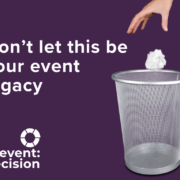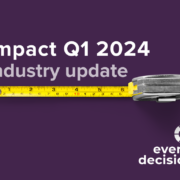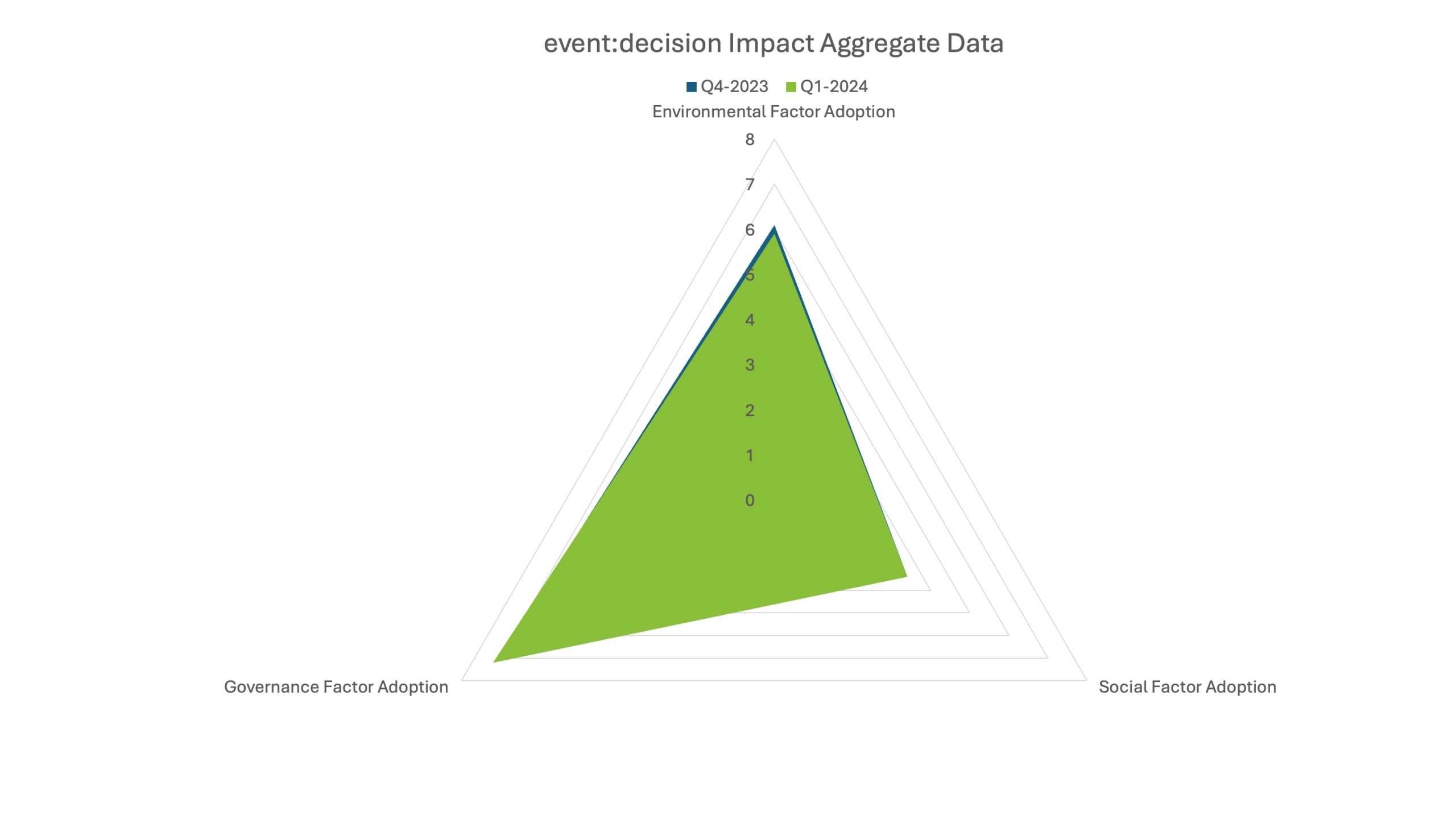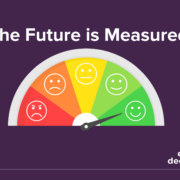Learning from large-scale events on social value and purpose
event:decision’s latest quarterly Impact report revealed that the UK event industry is lagging behind in increasing social value and purpose when considering the overall sustainability of events.
It’s an aspect that larger scale and global events have set benchmarks for in recent years, creating significant social impact through thoughtful event planning and execution. In looking at some of the ways they have approached the social value and purpose of these larger events – at every stage in the event production cycle – smaller event organisers can learn some useful lessons.
1. Event design – put social value and purpose on the agenda
Right at the very outset of planning their event these larger event organisers put increasing the social value and purpose of their event high up the agenda by:
- Planning for social value.
- Involving the stakeholders early on.
- Capturing local needs and priorities.
- Placing local basic needs at the core of the social value delivery.
- Establishing a ‘social value’ strategy.
“For the Rio 2016 Olympic and Paralympic Games we had a series of dialogues with organisations of civil society, so we gathered with 50 NGOs from different themes, we presented to them a first draft based on a materiality analysis on what the needs of the local population were, and they gave us feedback on what were the priorities and needs.”
Tania Braga, Former Head of Sustainability, Accessibility and Legacy, Rio 2016
For Rio, the local organisations identified training and skills leading to better future employment opportunities as being basic needs and a key social value for their communities. So; at-risk women in poor communities in Rio were trained in design, quality control and basic managerial skills and hired to make the 22,000 cushions that decorated the athlete’s apartments; young apprentices received training in sports and event management, and were given first job opportunities at the Games, and; some 1,450 young professionals were also offered training and skills in technology and subsequently jobs with Olympic Broadcasting services (OBS).
Lessons for smaller events
Deciding from the outset that social value will be part of the event’s core purpose will ensure it is front and centre in all your planning. Identifying what basic social needs there are in the local area of your event, and what the real local priorities are, will also help you consider aspects of the event that could be really useful (such as providing jobs and on-site training, as in the Rio 2016 example), rather than imposing your own ideas of what ‘social value’ looks like in that particular community.
2. Event planning – engage the local community
Throughout the event planing process keep coming back to the core questions that will help you deliver event value and purpose for your event:
- How will this benefit the community?
- What is the likely social return on investment?
- Does it meet the community’s needs?
“We worked with the host cities from the beginning of the project, we organised a meeting with the host cities to explain what we would like to do with our event and we explained to them that for the bid process, we will evaluate what kind of legacy they want for the host cities. We had them identify social environmental issues and explain how the event can help them to solve these issues.” Delphine Benoit-Mayoux,
Former Impact & Legacy Coordinator and Head of Sustainability, France 2019 FIFA Women’s World Cup
Lessons for smaller events
Establishing strong connections with the local community around your event and fostering a community spirit by involving local groups and charities in planning and execution – as well as asking them to help you in identifying social needs and priorities – will ensure that the event reflects the diverse needs of the community and genuinely delivers social value. This will probably involve more listening on the event manager’s part than talking.
3. Implementation and post-event: plan for legacy and impact
Increasing social value and purpose in events by definition isn’t a one-off activity so you should be planning from the outset how to make sure there is a lasting impact from your event, not just on the day(s) that it takes place. This is easier of course if it’s an event that repeats, where you can build up some longer term community projects, but even one-off events can think about their social legacy. Steps to consider are
- Launching legacy initiatives (such as a charity or Foundation) as part of the event to ensure lasting social impact.
- Continued public engagement.
- Re-visiting the social value strategy to ensure it stays relevant.
- Applying lessons and sharing.
- Ongoing measurement and assessment of impact.
Lessons for smaller events
For some larger events charitable foundations have been launched to set-up to manage community initiatives, which you could consider on a small scale. But even just thinking about raising money for charities that are important locally, and how to extend that further by involving those charities in your event, can be very worthwhile. You don’t have to build a community stadium or create a 1,000 jobs to have a meaningful impact locally.
“The company distributes large amounts of money to Greenpeace, Oxfam, Water Aid and other humanitarian causes which enhance the fabric of our society. In the running of the event the Festival deliberately employs the services of these organisations, increasing the amounts they can raise towards their objectives.”
Michael Eavis, Founder Glastonbury
By drawing inspiration from large-scale events, smaller event organisers can implement scalable strategies to enhance the social value and purpose of their events. These initiatives not only make the events more enjoyable and meaningful for participants but also positively impact the broader community and enhance the sustainability of the event. Starting by engaging the local community to identify their basic needs, then asking questions and listening, means even a small initiative can leave a lasting positive imprint on both event attendees and the local area.
For more details about Impact (ESG) Assessments and Track (carbon reporting for events) do get in touch.




